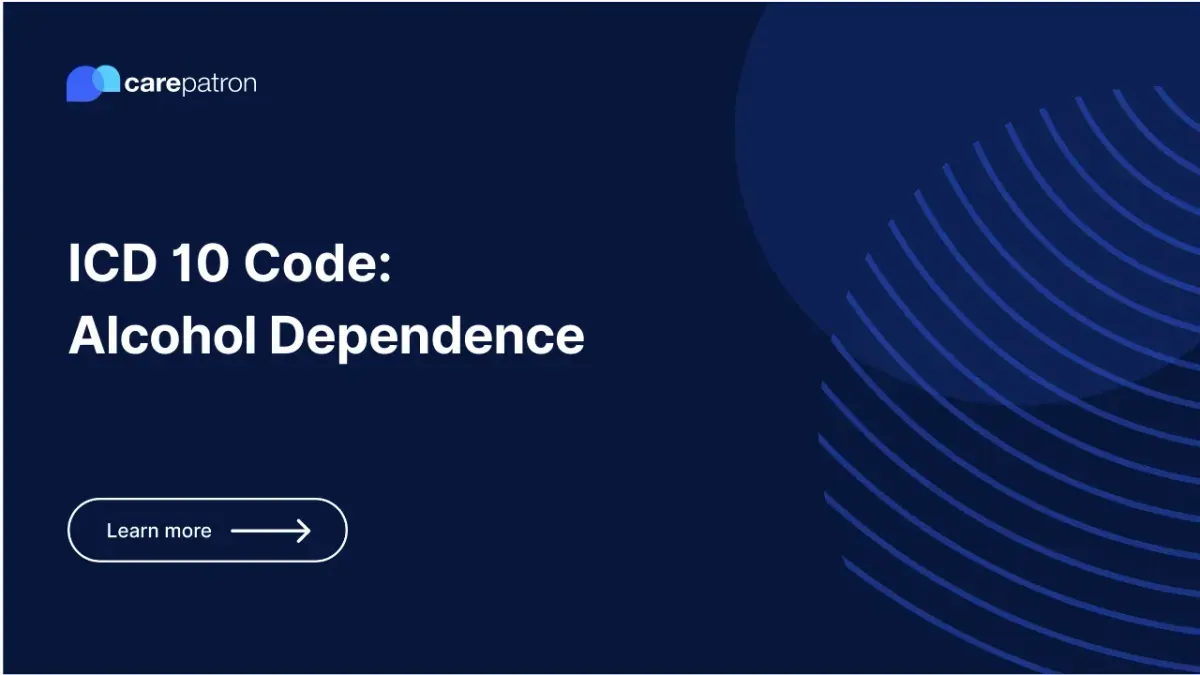
Alcohol Dependence ICD-10-CM Codes | 2025
Explore ICD-10-CM codes for alcohol dependence, including billable codes, symptoms, diagnosis tips, clinical info, and key differences from abuse.
Use Code
EHR and practice management software
Get started for free
*No credit card required
Free
$0/usd
Unlimited clients
Telehealth
1GB of storage
Client portal text
Automated billing and online payments
